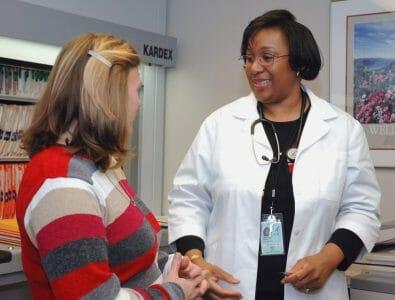Varicose veins affect over 30% of the general population. These bulging veins can be uncomfortable, painful, and unsightly. While traditional treatment methods, such as surgery, have been used in the past, non-surgical treatments are becoming increasingly popular. This article will explore why non-surgical varicose vein treatment is on the rise.
What are Varicose Veins?
Varicose veins are enlarged veins that usually occur in the legs and feet. They are often blue or purple and bulge from the skin’s surface. Varicose veins are caused by weakened valves in the veins that prevent blood from flowing back up to the heart. Instead, blood pools in the veins, causing them to stretch and bulge. Consult a Port Charlotte vein specialist for more information on varicose veins and treatment options.
Traditional Treatment Methods for Varicose Veins
Traditionally, doctors have treated varicose veins with surgery. The procedure involves making incisions in the skin and removing the affected veins. While surgery can be effective, it can also be painful and need a long recovery time.
Non-Surgical Treatment Methods for Varicose Veins
Non-surgical treatment methods for varicose veins are becoming increasingly popular because they are less invasive and need less downtime. Here are some of the non-surgical treatment options available:
Sclerotherapy
Sclerotherapy involves injecting a solution into the affected vein. This solution causes the vein to collapse and disappear over time.
Endovenous Laser Treatment (EVLT)
EVLT involves using a laser to heat the affected vein, causing it to close and eventually disappear.
Radiofrequency Ablation (RFA)
RFA involves using radio waves to heat the afflicted vein, forcing it to shut and finally disappear.
Why Non-Surgical Treatment Methods are Increasingly Popular
Non-surgical treatment methods for varicose veins are becoming increasingly popular for several reasons. Here are some of the reasons why:
Less Invasive
Non-surgical treatment methods are less invasive than traditional surgery. They do not need incisions in the skin and do not involve removing the affected veins.
Shorter Recovery Time
Non-surgical treatment methods usually need little to no downtime. Patients can often resume normal activities immediately after the procedure.
Lower Risk of Complications
Non-surgical treatment methods have a lower risk of complications compared to traditional surgery. There is less risk of infection, bleeding, and other complications.
Higher Success Rates
Non-surgical treatment methods have high success rates. Studies have shown that sclerotherapy has a success rate of over 90%, and EVLT and RFA have success rates of over 95%.
Goals and Expectations
Patients should have realistic expectations for the procedure. They also need to understand that the results may vary depending on the following factors:
– Severity of the condition
– Chosen treatment option
– Physician’s expertise
Once a patient’s candidacy has been determined, the next step is to select the appropriate treatment option. Patients should make this decision in consultation with a qualified and experienced physician. Choosing the right treatment option ensures the best outcomes and patient satisfaction.
Who is a Candidate for Non-Surgical Treatment Methods?
Not everyone with varicose veins is a candidate for non-surgical treatment methods. Your doctor will determine if you are a candidate based on the following factors:
Severity of Varicose Veins
Non-surgical treatments are usually effective for mild to moderate cases of varicose veins. Patients with severe cases may need more extensive treatments, including surgery.
Overall Health Status
Patients should be in good health to undergo the procedure. Any underlying medical conditions should be addressed and managed before the treatment.
Age
Non-surgical treatments are generally safe for patients of all ages. However, older patients may have weakened veins and may need more precautions.
Pregnancy and Breastfeeding
Non-surgical treatments are generally not recommended for pregnant or breastfeeding women. Non-surgical treatments usually are not recommended for pregnant or breastfeeding women. These treatments have the risk of harming the fetus or developing infant.
Medications
Patients taking certain medications, such as blood thinners, may need to stop taking them before the procedure. You should discuss this theme with the treating physician.
Allergies
Patients with allergies to the anesthetic used during the procedure may not be candidates for non-surgical varicose vein treatment.
Conclusion
Non-surgical treatment methods for varicose veins are becoming increasingly popular. These procedures are less invasive, have a shorter recovery time, a lower risk of complications, and have high success rates. If you are experiencing varicose veins, talk to your doctor to determine if non-surgical treatment methods suit you.
